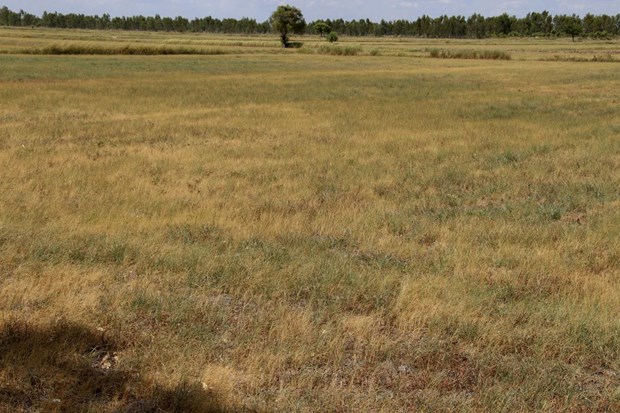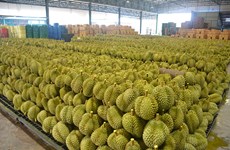Droughts hit Thailand’s rice sector
This is a tough year for Thailand’s rice sector due to prolonged droughts in the northeast and strong baht (THB), said Honorary President of the Thai Rice Exporters Association Chookiat Ophaswongse.
 Rice fields in Nakhon Ratchasima have been damaged by the drought. (Photo: bangkokpost.com)
Rice fields in Nakhon Ratchasima have been damaged by the drought. (Photo: bangkokpost.com)Bangkok (VNA) – This is a tough year for Thailand’s rice sector due to prolonged droughts in the northeast and strong baht (THB), said Honorary President of the Thai Rice Exporters Association Chookiat Ophaswongse.
If low rainfall extends until August, it is possible that rice exports will be lowered to 8.5 million tonnes, the lowest volume in the past seven years, he said.
Chookiat estimated the impact of the THB’s gain to an average 30.8 THB per USD now from 32 THB early in the year had cost Thailand’s overall rice export income about 20 billion THB (647 million USD).
Without rain by August, the worst-case scenario is a severe impact, cutting Hom Mali paddy rice production in the Northeast by around 40-50 percent to 4-4.5 million tonnes from normal production of 8.5-9 million tonnes, Chookiat was quoted by Thai media as saying.
Milled Thai Hom Mali rice supply is said to fall to some 2 million tonnes from estimated 4 million, leading Thai having no premium rice for export, he said.
Long droughts may drive the prices of Thai Hom Mali rice to 25,000 THB to 16,000 THB per tonne, while the domestic price could rise to 36,000 THB from 25,000 THB per tonne.
He stated if the rainfall comes earlier, Thailand still has a chance to export 1 million tonne of Hom Mali rice, with price increasing to 1,500 USD per tonnes as compared to 1,000 USD last year.
Meanwhile, President of the Thai Rice Exporters Association Charoen Laothamatas said Thailand’s rice exports hit the lowest rate in June at only 578,000 tonnes, much lower than the average 720,000 tonnes in the previous months this year.
The drop caused total rice shipments in first half to fall by 19.6 percent from the same time last year to only 4.36 million tonnes.
The new target is about 20 percent less than the 11.23 million tonnes the country shipped in 2018.
Thailand expects to gain around 4.7 billion USD from rice exports in 2019, down 17 percent from last year.-VNA











